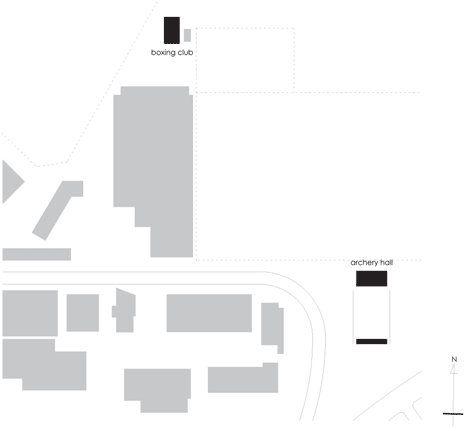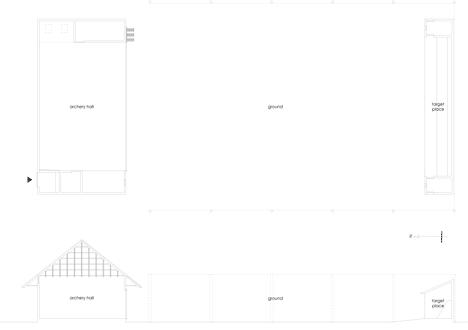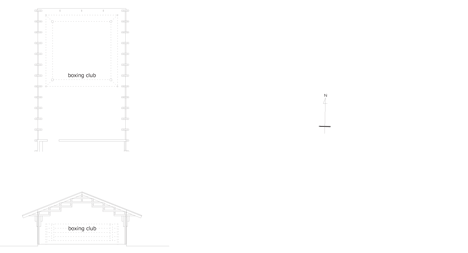Archery Hall and Boxing Club by FT Architects
Complex wooden lattices provide a stage set for archery competitions and boxing matches at this pair of university buildings in Tokyo by Japanese studio FT Architects (+ slideshow).
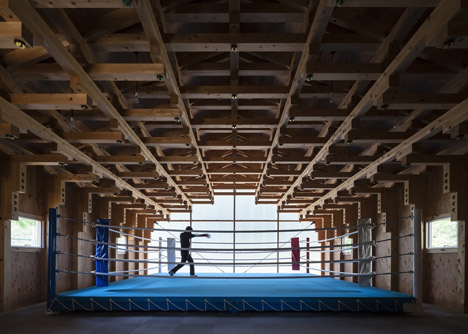
Located on the campus of Tokyo's Kogakuin University, the two structures are both dedicated to sporting activities and called for column-free spaces built from low-cost materials.
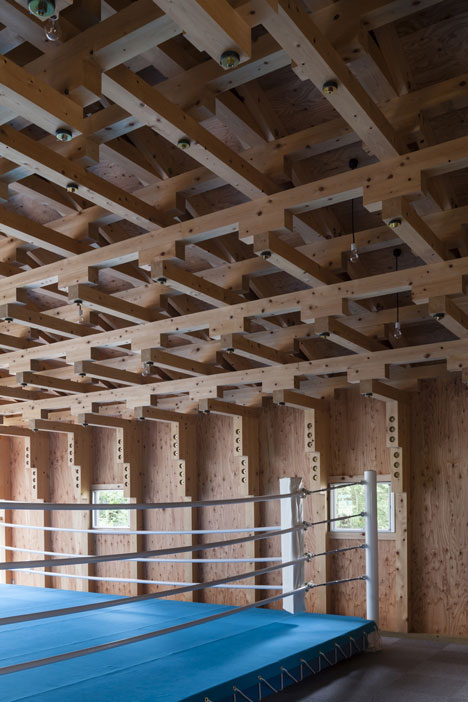
Katsuya Fukushima and Hiroko Tominaga of FT Architects used locally sourced timber for the construction of both buildings.
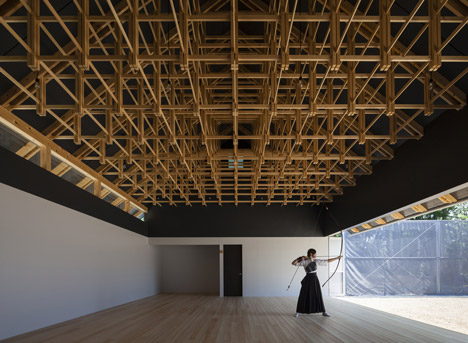
They said: "We have salvaged the purity of traditional Japanese timber composition, simply made up of horizontals and verticals, which has been somewhat disregarded ever since the advent of modernism in Japan."
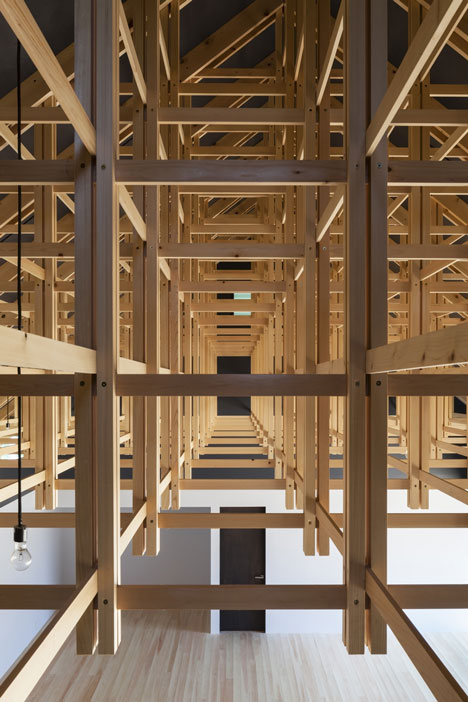
"Small timber sections, normally reserved for furniture making, were chosen for the archery hall, and timber members deemed defected because of insect damage, for the boxing club," they added.
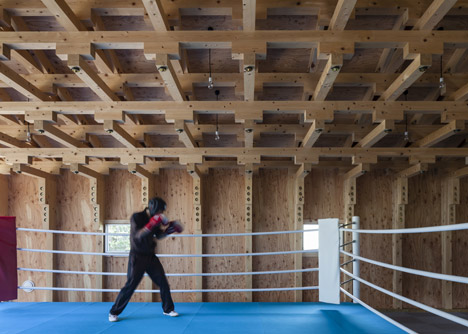
A simple bolt-and-nut assembly was used for both frameworks, but required meticulous accuracy to ensure that each grid is made up of only perpendicular elements.
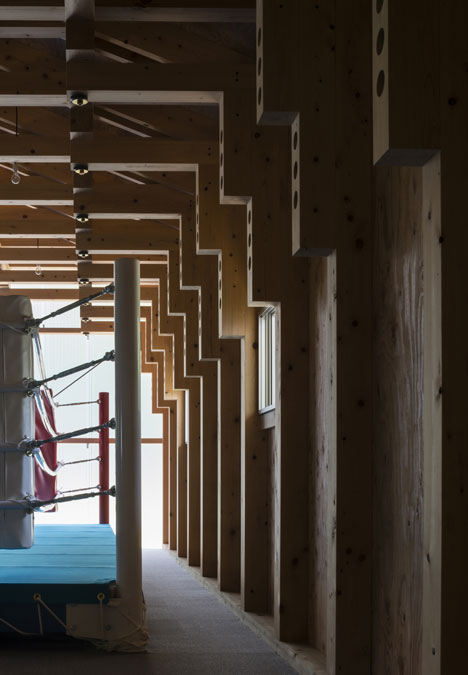
Other projects by Tokyo studio FT Architects include a house pierced by eight concrete columns.
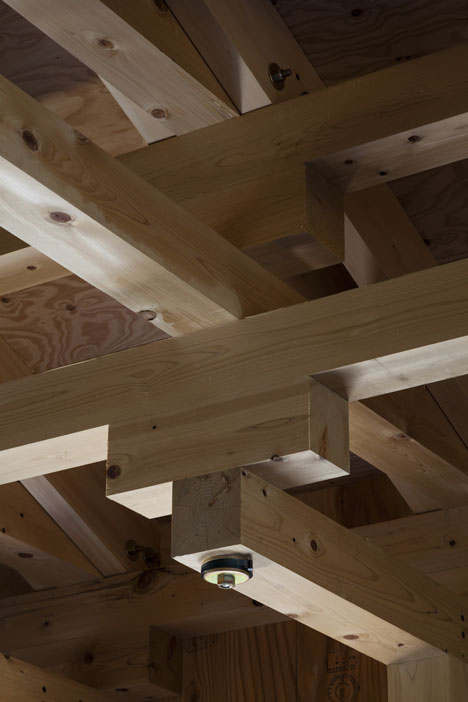
Another sports centre recently completed in Japan features an exposed timber frame and huge clerestory windows.
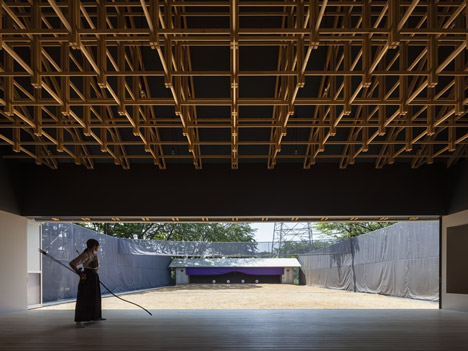
See more sports centres »
See more architecture in Japan »
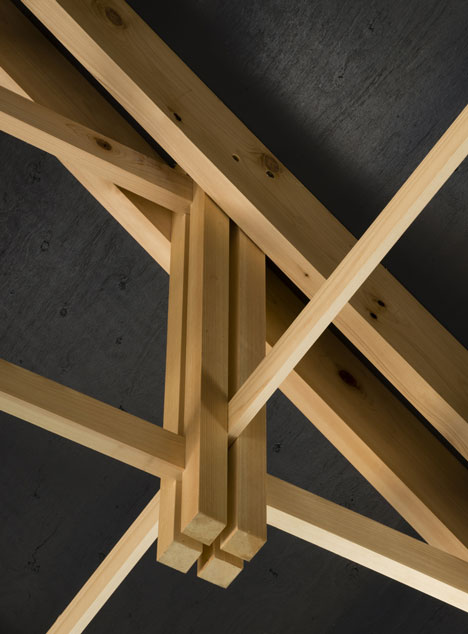
Photography is by Shigeo Ogawa.
Here's some more information from FT Architects:
Archery Hall and Boxing Club, Kogakuin University, Tokyo
Structure & Space - medium-span, column-free
The project consists of two buildings, an archery hall and a boxing club, standing a few hundred metres apart on the grounds of Kogakuin University in west Tokyo.
The formal rituals of Kyudo (Japanese archery) and the very physical nature of boxing may appear worlds apart. However, surprisingly, the two built facilities share a number of commonalities.
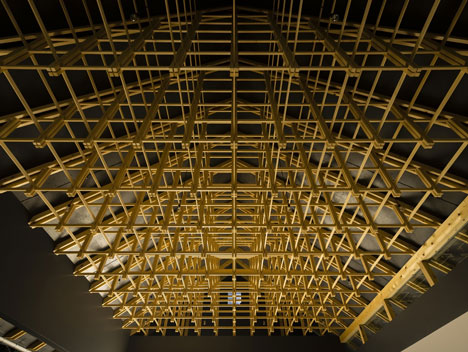
The University's brief was for low-cost structures made of locally sourced timber to provide accessible and inspiring spaces for the students. By chance, both facilities called for a column-free space of 7.2m by 10.8m, a size that is comparable to a sacred hall in a traditional Japanese temple. In order to achieve this span, without columns and using low-cost methods of timber construction, it was necessary to come up with an innovative timber solution. We began the project by investigating a number of structural forms that would be appropriate for each sport.
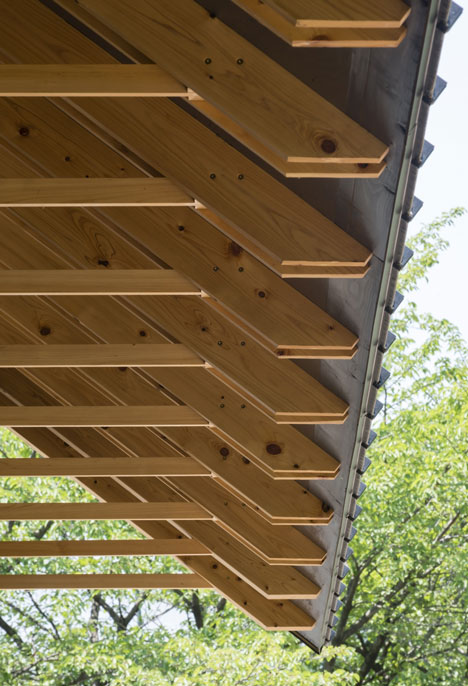
Underlying Principles
Through collaborative exploration with timber experts, from researchers, manufacturers to suppliers, we derived at timber materials that are not commonly associated with structural or architectural usage. Small timber sections, normally reserved for furniture making, were chosen for the archery hall, and timber members deemed defected because of insect damage, for the boxing club.
We have salvaged the purity of traditional Japanese timber composition, simply made up of horizontals and verticals, which has been somewhat disregarded ever since the advent of modernism in Japan. Delicate lattice frame composed of slender ties beams and posts for the archery hall, and a bolder, stepped frame, was employed for the boxing club. Here, timber, a historical material, has been reanalysed and transformed into a new building material.
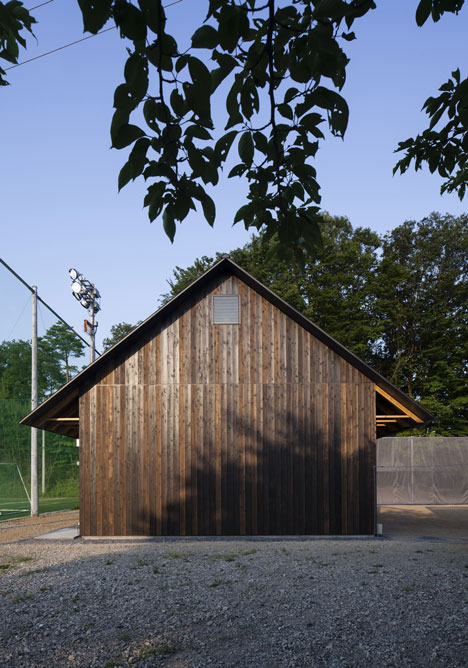
Contrast/Complement
The two structures have been constructed employing a simple, lo-tech method of bolt-and-nut assembly. However, due to the scale of the space and simplicity of construction, the execution had to be meticulous, in order to produce spaces that are out of the ordinary.
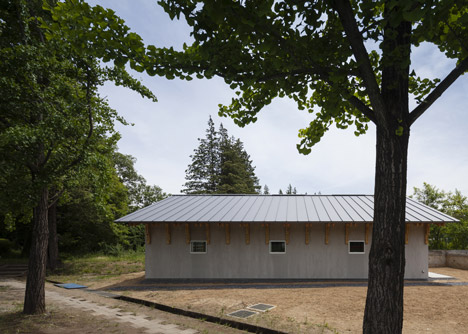
For each building, the main subject is the 7.2m x 10.8m space and the timber structure, merely its backdrop. The powerful presence of the timber structure emphasises the stark transparency of the void below. The whole is only achieved by the juxtaposition of these two contrasting and complementing qualities.
Departing from the same starting point, the two buildings have arrived at a shared architectural theme via two different structural and spatial solutions.
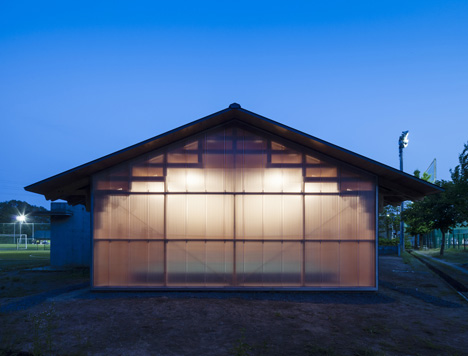
Completion: 2013
Location: Tokyo, Japan
Principal use: archery hall (Japanese archery=Kyudo) and boxing club
Total floor area: archery hall 106.00 sqm, boxing club 92.75 sqm
Structure: wood
Architect: FT Architects/Katsuya Fukushima, Hiroko Tominaga
